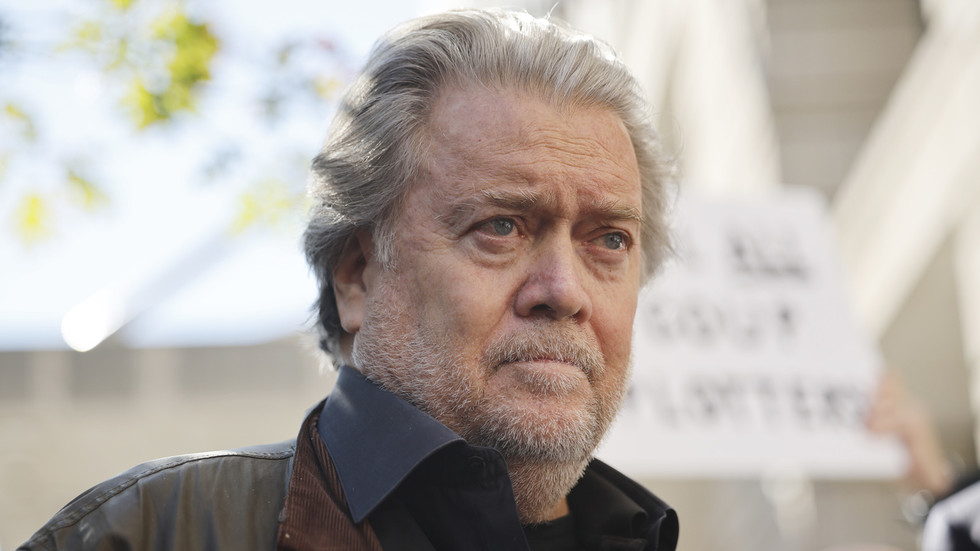Steve Bannon, a prominent figure in former President Donald Trump’s administration and known for his role as a chief strategist, has recently completed a four-month prison sentence following a conviction for contempt of Congress. This conviction stemmed from his refusal to comply with a subpoena issued by the congressional committee investigating the January 6, 2021, Capitol riot. Bannon was originally sentenced in October 2022 but had been granted bail while appealing the decision. His release from the Federal Correctional Institution in Danbury, Connecticut, occurred early on a Tuesday morning and was reportedly met by his daughter, Maureen, highlighting the personal connections that remain significant in his life amidst the political chaos surrounding him.
Since his incarceration, Bannon has maintained a steadfast presence in the conservative media landscape, particularly as the host of the “War Room” podcast. He has characterized himself as a “political prisoner” under the Biden administration, suggesting a broader narrative of victimization by the allegedly corrupt political establishment. Bannon has been vocal in his predictions about the upcoming presidential race, expressing belief that efforts will be made to undermine a fair election process. He has dismissed the contempt proceedings against him as nothing more than a “show trial,” illustrating his enduring defiance and his willingness to frame his legal challenges within the larger context of political warfare.
Despite the setbacks from his conviction, Bannon’s legal troubles are far from over. He is currently appealing his contempt conviction at a higher level in the federal court system, indicating his determination to fight the charges against him. In addition to these challenges, Bannon faces serious allegations in New York, where he has been charged with defrauding donors in a campaign intended to raise funds for constructing a wall along the US-Mexico border. These accusations include money laundering, conspiracy, and fraud, and Bannon has pleaded not guilty on all counts. The trial for these new charges is set to start in December, further complicating his situation and amplifying his legal burdens.
Bannon’s combative stance on these legal issues underscores his role as a polarizing figure within American political discourse. His release from prison comes at a politically crucial moment, just one week before pivotal elections, allowing him to re-enter the public sphere with renewed vigor. He has announced plans to hold a press conference in New York and to resume broadcasting his radio show, likely using these platforms to continue shaping conservative narratives and engaging his supporters during a critical electoral period.
As Bannon re-establishes his presence, the implications of his legal and political battles extend beyond his personal situation. His rhetoric and actions reflect broader themes in contemporary American politics, including the division within the Republican Party and the escalating tensions between Trump loyalists and more traditional political figures. Bannon’s characterization of his legal challenges serves as a rallying cry for those who perceive the current administration as wielding power against its opponents. This framing may resonate with elements of the electorate disillusioned with the political status quo.
In summary, Steve Bannon’s release from prison marks a significant moment in his ongoing saga as a contentious political operative. His conviction for contempt of Congress has not dampened his resolve to remain an influential voice within conservative circles, and his upcoming trial on fraud charges only adds to the drama of his narrative. As he prepares to re-engage with his audience, Bannon epitomizes the intertwining of personal ambition and broader political movements, underscoring the complex landscape of American politics as the country inches closer to the next major electoral decisions.

